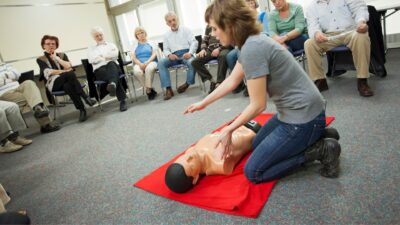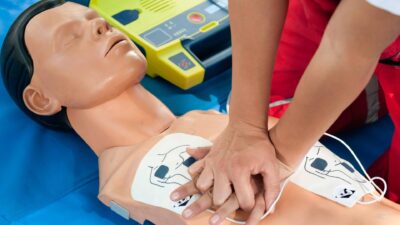
How to Use CPR Techniques in Conjunction with Other First Aid Skills In Kansas City
Emergencies can happen anywhere: at home, work, or in public spaces. When someone suddenly stops breathing or experiences a medical crisis, CPR (Cardiopulmonary Resuscitation) combined with other first aid skills can make all the difference. In Kansas City, knowing how to act fast and provide the right care before professional help arrives can double or…
Read More







